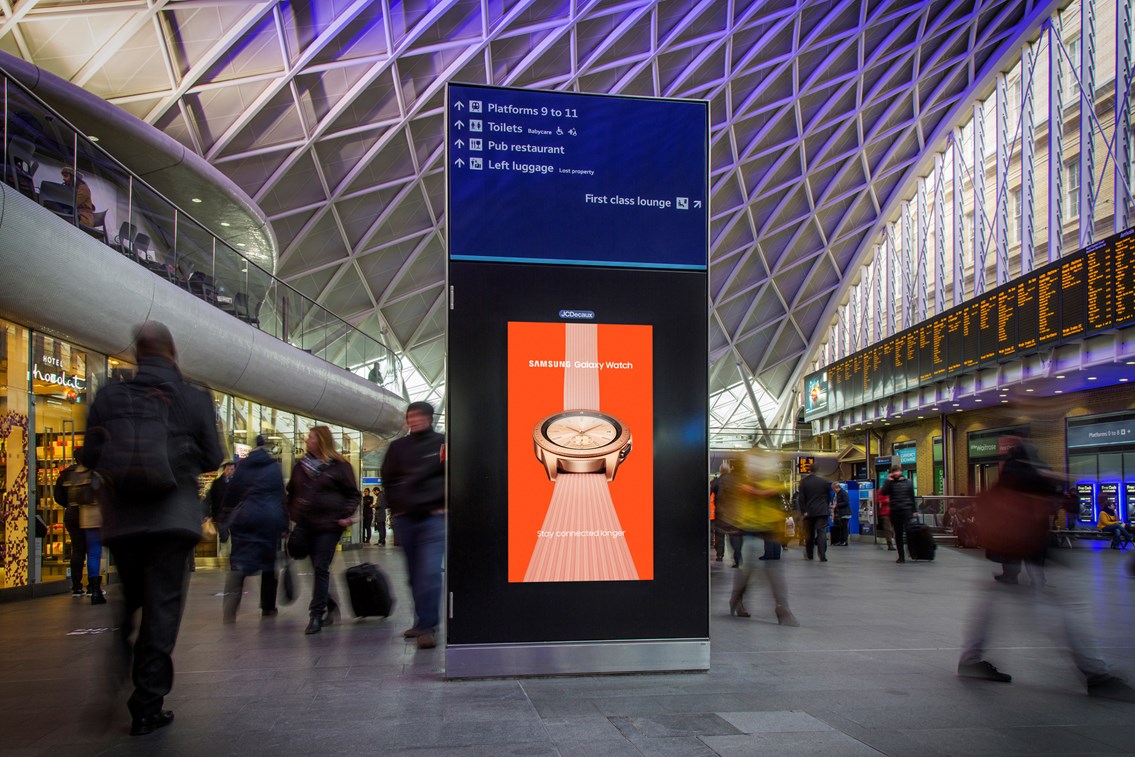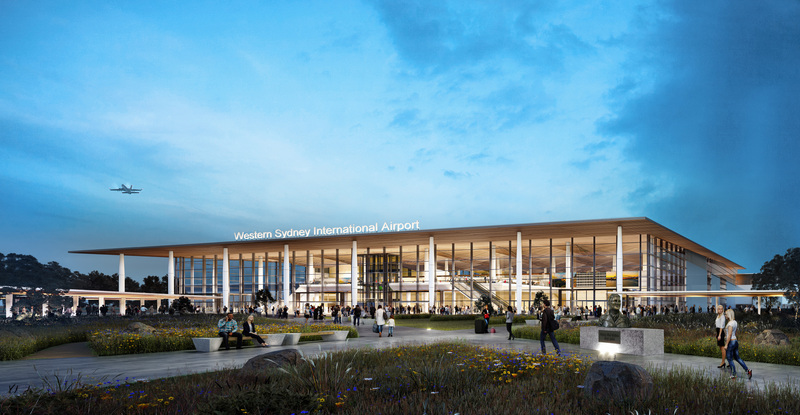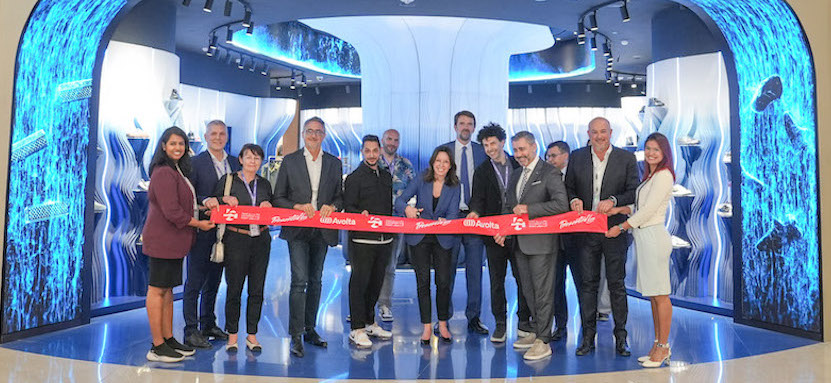EUROPE. The European Travel Retail Confederation (ETRC) is pushing hard for the introduction of arrivals duty free shopping across European airports, in a bid to stimulate the COVID-19-hit industry,
Newly re-elected ETRC President Nigel Keal announced the campaign during a media briefing this morning.
He said: “While the recovery from COVID-19 will take centre stage on the agenda of ETRC, we now need to turn our efforts to boosting industry recovery, furthering strategies and developing new opportunities that will revive the industry in the long-term and safeguard the future of duty free and travel retail in Europe.
“Fundamental for a sustainable recovery will be to level the playing field with the rest of the world [he noted that over 40 other states permit arrivals duty free sales -Ed], and we will therefore be seeking changes to EU legislation to allow for arrivals duty free shops to be opened at EU airports – providing employment opportunities and important revenue generation for retail operators, brands and our airport partners.”

Speaking at the briefing, he added: “We have embarked on a campaign during the last two to four weeks with ACI to call for changes in EU legislation to allow arrivals duty free in European airports [for travellers coming from non-EU locations -Ed].
“The EU Commission have not traditionally in the past been open for any kind of discussion on this. But we genuinely believe that now is the time to put this firmly back on the table.
“We need to convince member states and finance ministers in Member States that this is worthwhile and advantageous.”
The argument for arrivals duty free could be timely, Keal noted, as it would be self-sustaining as a business, and help build income for airports and governments.
“It can open up all sorts of new opportunities, helping to drive growth. it is a big thing for us. It is new business. It is not asking any government or the EU for money.”
Gaining support
Importantly, ETRC has gained the support of the four largest travel retailers in the region to push for the move, alongside the airport community through ACI Europe.

ETRC Secretary General Julie Lassaigne said: “We had individual briefings on ETRC’s plans for COVID-19 recovery and in particular, our objective to seek arrivals duty free in the EU with the CEOs of ARI, Dufry, Gebr Heinemann and Lagardère Travel Retail. All confirmed their support and their proactive engagement to seize this unique opportunity.”
She added: “In recent weeks we ensured ACI Europe was onboard as obviously this carries a huge benefit potentially for airport revenues. We are confident they will support us as they carry a big voice to the EU Commission and member states. We are now at the stage where we’ll start reaching out to local governments with the help of local retailers, national associations and the airports. They can get in front of governments to show the importance and impact of arrivals shops on revenue and how it can aid recovery.
“That will start shortly. There is urgency in the campaign. It is a one-off opportunity where the stars may be aligned, with the crisis, recovery, environmental considerations, maybe ecommerce too [on the agenda], all of which play in our favour.
“Part of the task is to order an economic impact study to show the Commission and EU states some robust figures to back up our arguments. It’s not enough to have nice words or ideas, we have to demonstrate the potential impact of changing legislation. So we will focus on the arguments, getting robust data, engaging our national associations and getting airport partners onboard so we can go to finance and transport ministers and have all that in place after the Summer.
“We are mindful of EU specificities about what product is sold. Any study must show the benefits to the transport infrastructure and make the right arguments for the member states, some of which are sensitive about duty free.”
The legislative challenge
The move will require rewriting excise and VAT legislation in the EU, which Keal acknowledged could be a challenge, with potential opposition from the EU Commission tax authorities (the EU Directorate-General of Taxes).
He said: “There are two pressure points. First, you have to have unanimity between member states to change the rules. That is not easy. Also, this sits in the office of the DG Taxes who clearly do not see this as high on their list of priorities.”
On the various channels that could be included under arrivals duty free rules, Lassaigne said: “European legislation [on duty free] talks of sea or air passengers travelling, so this legislation would be the reverse, applying to people coming in by sea or air from third countries. It could mean ports or cruise terminals. It concerns the EU Excise and VAT Directive so arrivals shops would have to be placed before Customs control so that people are technically still in transit and have not entered EU territory. So that will depend on what conditions we can put in place with member states for non-EU travellers in each case.”
In the UK, in particular, the ETRC and UK Travel Retail Forum (UKTRF) are hopeful that (boosted by Brexit), arrivals duty free will happen in the near term. The UK government closed a public consultation on duty free in May. It asked what the public and industry would seek from a return to a duty free regime.
Keal said: “The UK government have asked about and are seriously considering arrivals duty free. It is in the consultation, and has been requested by various members. The decision we believe will come in September about what new rules will be drawn up. If the UK moves in that direction there will be an impact on EU airports. This in turn will give more credence for the EU arrivals business.”

On the Brexit discussions and the implications for a return to duty free [between the UK and EU], Keal said: “The most important thing is that the UK government is open to suggestions from the industry. That hasn’t always happened. They have asked for consultation which opens the door to a new start. There are good vibes from the associated departments of government. If I was to summarise my view, I would say that if the EU Commission was as open to arrivals duty free as the UK government is open to the discussion on duty free including arrivals, I would be very pleased.”
Lassaigne added: “Ultimately it comes down to a political decision in the UK. How this feeds into the Brexit picture is one question. We should have had some indications by the end of July as to what direction the UK government is going but we expect nothing official until September.”
The railway duty free opportunity
Keal said that the ETRC is also pushing for duty free to also be introduced in UK and continental European railway stations. In the original Brexit declaration, international railway stations in the UK were given approval for duty free. “We sincerely believe that that’s going to happen in the UK, and therefore we should also be pushing that within the EU,” Keal said.

Lassaigne added: “We have started talking to some governments, notably in France, Belgium and the Netherlands about the possibility of rail duty free. They see the commercial benefits of revenue to support rail infrastructure in Europe and there is a lot of talk about rail as a growth channel in the region.
“We need to reassure them about the conditions for how duty free can be put in place with full customs control, and restricted access areas for which you need a ticket, just as you see at airports. The infrastructure at Eurostar for example is in place, but there may be places on the EU’s eastern borders where it is not.”
Digital labelling
ETRC also highlighted the issue of digital labelling as another that remains high on its agenda. As reported, ETRC (with TFWA) has led the second phase of development of a digital labelling platform, designed to provide allergens and health warnings in multiple languages on customers’ mobile phones, rather than on product packaging. The technology was trialled with ten items at Hamburg Airport in December 2018.
Lassaigne said:“The next phase is to allow shoppers to scan a label and have access to product information. It is a way to protect the industry from new labelling requirements, and to allow access to product detail in many languages.
“The aim is for this to be permitted by the EU Commission later this year, which would be a game changer for suppliers, and a boost for retailers in terms of compliance.
“COVID-19 has changed the timing of the project as people have had less resource to dedicate to this. There remains a strong commitment to bringing the project to the end towards October and launch a website with items that suppliers have agreed to enter onto the platform. We will present that in the Autumn to the Commission with the aim to have official recognition.”
ETRC noted that domestic market associations had sought advice on their own labelling innovations. “ETRC is acting as coordinator for a group of industry associations in Brussels to seek relaxation of labelling requirements and to allow digital labelling in Europe across channels. We are advanced by comparison to domestic markets on how we communicate and we are leading the way with this initiative.”












